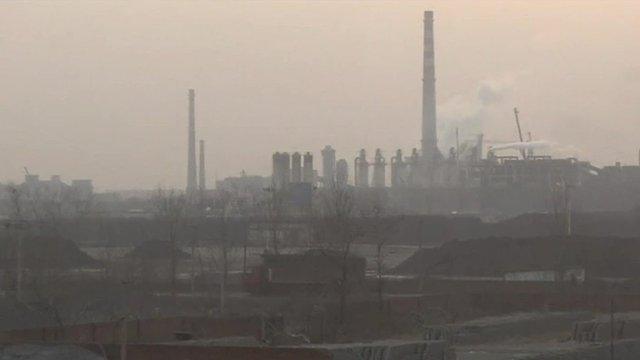Americans obsess over weather but not climate
- Published
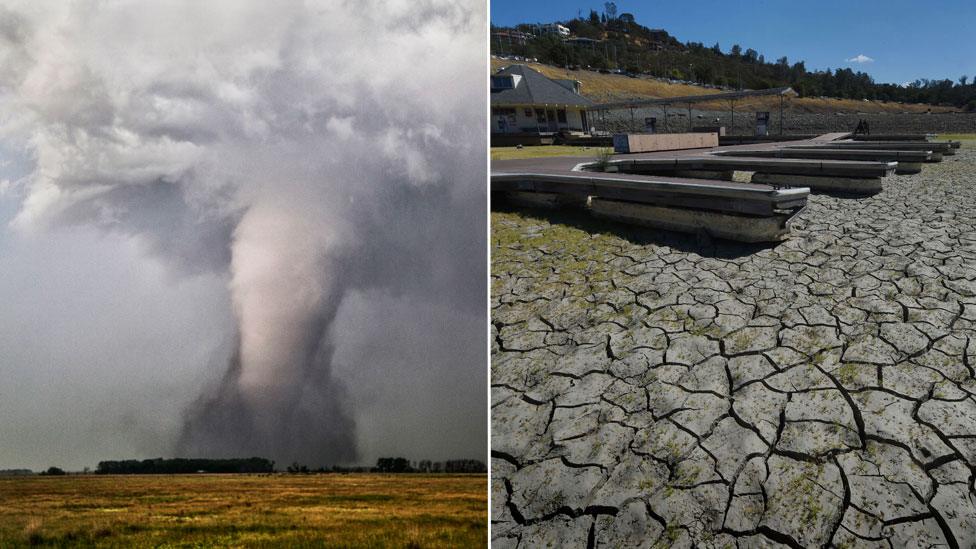
What's a complicated, slow-moving geopolitical crisis when you can talk about the weather?
Everyone loves a vignette that tells a story. And so I offer you this.
Last night on ABC's World News Tonight, the broadcaster's evening news show, with the supercool David Muir, there was the most brilliant encapsulation of the US attitude towards the whole issue of climate.
The second story was the latest shocking weather to strike the United States. There is rarely a night when extreme weather isn't on the bulletin. America gets seriously wild, raucous and disruptive weather - last night it was storms in Oklahoma, Minnesota and Kansas.
Then, two or three stories later, there was a report on the climate change conference in Paris. As if the two are totally disconnected, two completely different subjects. What link could there possibly be? What dots could possibly be joined?
Here's an observation that will probably infuriate many - Americans are obsessed by weather, and not much interested in climate.
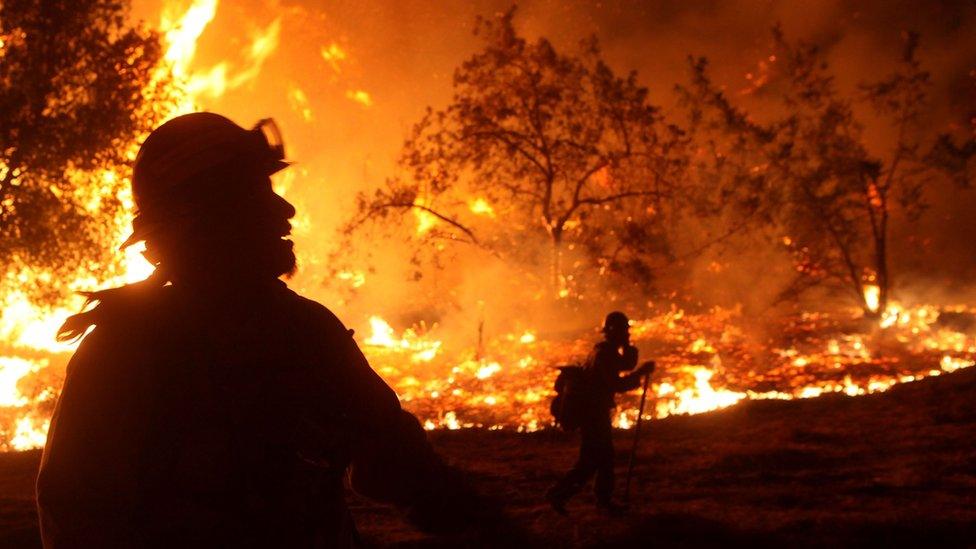
Firefighters fight back a blaze in California
Throughout last summer there were extensive reports on the forest fires that ravaged parts of California, about farmers' protests in the state's Central Valley, as the growers of America's fruit basket were ordered to cut drastically the amount of water they used to irrigate the land.
There was discussion of the tankers that might be deployed to bring water to the parched landscape of California and the cost of building a water pipeline - but not that much discussion about why the snows had failed to arrive - yet again - in the Sierra Nevada mountains.
This is changing, as Barack Obama seeks to make the environment and climate change a central plank of his final year in office.
In the summer, he went to Alaska to announce his clean energy plan - a proposal to cut greenhouse gas emissions from US power stations by a third in the next 15 years.
And to counter the idea that America only hurts itself by taking unilateral action, he managed to wrest similar commitments from the Chinese.
Jon reports on drought in Yosemite as well as opposition to Obama from the coal industry
So if you focus exclusively on Paris you would think that the matter is settled. The US will change direction on CO2 emissions, and stop being "the bad boy" in world public opinion when it comes to climate change.
But the argument is anything but settled. As I write this, Republicans in the House are debating proposals to strike down Obama's proposals. The Senate has already voted to reject them.
The president can, with a wave of his veto, brush all that aside (I think I am going to ask Father Christmas for an all-powerful veto this year - what fun it would be to have one of those). But it tells you something about the climate of climate (if you see what I mean).
Among the Republicans leading the field for the party's presidential nomination, climate change scepticism is widespread.
"I consider it to be not a big problem at all," Donald Trump tweeted after a recent cold snap. "Man we could use a big fat dose of global warming".
Similar sentiments have been expressed by the retired neurosurgeon, Dr Ben Carson, who has said he believes there is no overwhelming science to prove the things going on in the natural world are man-made.
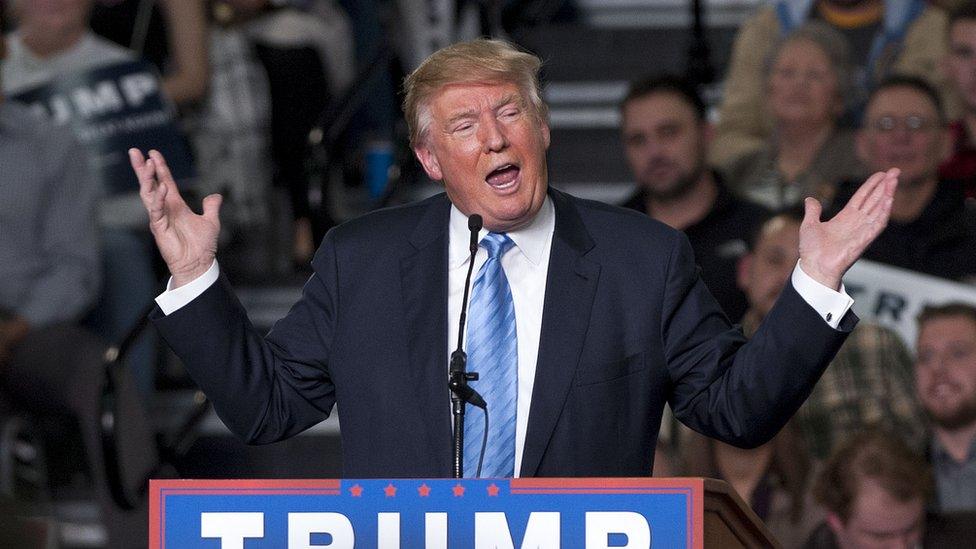
Donald Trump on climate change: "I consider it to be not a big problem at all"
And then there is the guerrilla wing of politics - litigation.
There is a slew of legal actions being launched by coal-producing states in alliance with coal firms to entangle Mr Obama's emissions plans in so much legal knotweed that the polar icecap might have become a heated swimming pool by the time all the cases are settled.
So when you next watch the news and hear the words "storm brewing", it might be about Mr Obama's proposals themselves and not the latest weather system.
- Published1 December 2015
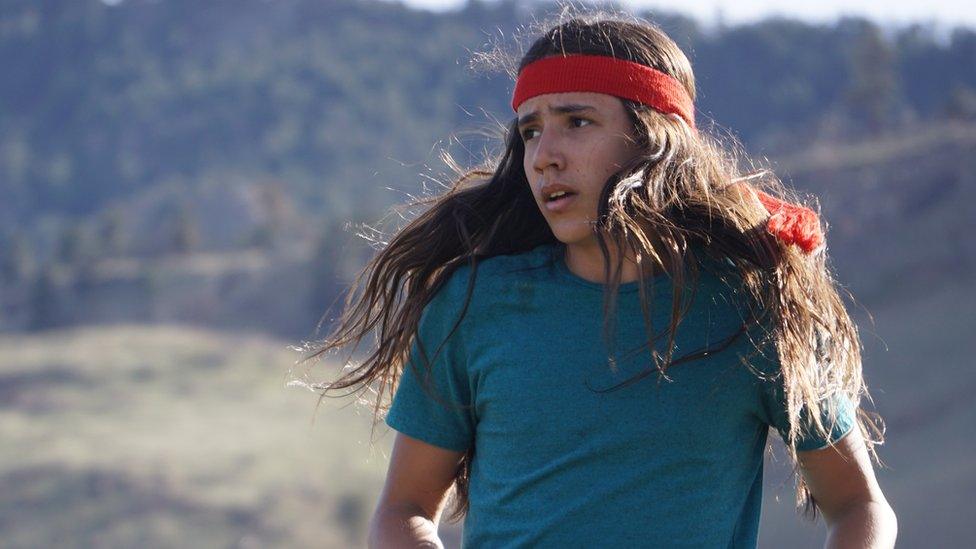
- Published30 November 2015
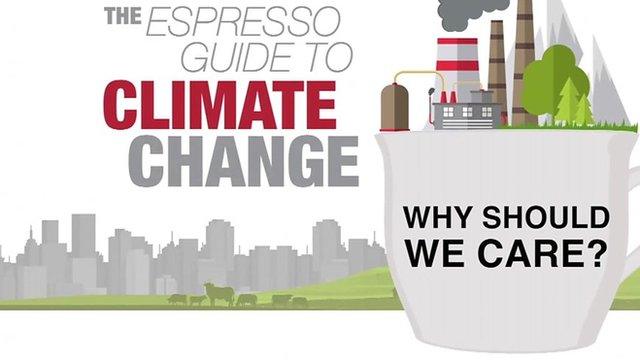
- Published30 November 2015

- Published30 November 2015
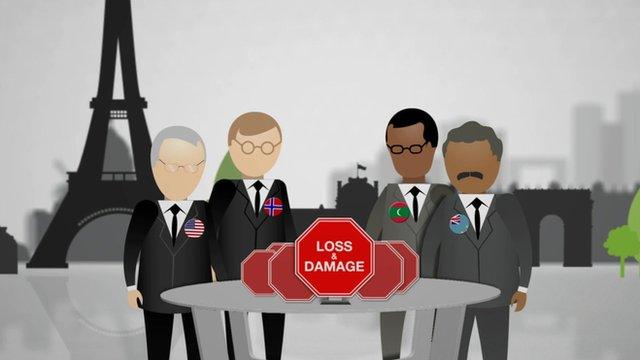
- Published1 December 2015

- Published30 November 2015
